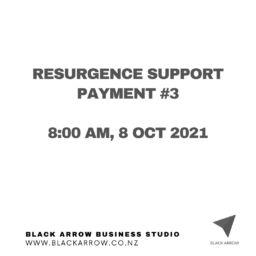
Keeping track of your key metrics is crucial for running a successful business. It’s not just about measuring profit and loss, but also about monitoring other important performance indicators, numbers and metrics.
You don’t need to get too caught up in the numbers, but understanding which key metrics to follow and why can help you identify issues and keep track of your business’s progress.
There is no universal approach to tracking these metrics and key performance indicators (also known as KPIs, which are goals used to assess an organisation’s or employee’s success). Which metrics you use and how you track them will vary depending on your industry and business model. A business advisor can assist you in determining this.
How much money your business has made
Expenses are not taken into account when calculating this figure; only income is considered. Your revenue includes all the money you earn from your products or services, as well as any other income you receive, such as interest on savings and income from investments.
Revenue is one of the key metrics you need to monitor to ensure that you are covering your expenses and staying financially viable. It’s important to note that revenue and cash flow are not the same things.
Tips on business finance basics
Your revenue minus your expenses, or the bottom line
While making a profit is generally desirable, a loss isn’t necessarily negative. It all depends on the situation – it’s normal to operate at a loss when starting out or when investing for future returns. However, if your business consistently loses more money than it earns, you will need to make some adjustments.
Your year-to-date net profit as a percentage of revenue
This figure shows how successful you have been at making a profit while covering costs.
Your monthly operating expenses
The amount of money needed to keep your business running. This includes expenses such as rent, staff salaries, and supplies for the workplace. Keeping track of this figure is crucial to staying within your budget.
The extent to which your people and major assets, such as machinery, are being utilised
There are a few ways to calculate this key metric. One common method to measure employee utilisation is as a percentage of billable hours per person compared to their total working hours.
For your assets, it’s the percentage of how much each asset is being used compared to its maximum capacity, or the percentage of revenue earned by each asset versus its maximum earning potential.
Monitoring your utilisation rates can help your business reach its full potential. However, it’s important to understand that no person or asset can be expected to provide a 100% return.
For instance, Joanna runs a small marketing firm. Susan, one of her full-time employees, works 40 hours per week, and 30 of those hours are spent on work that Joanna can charge her clients for. This indicates that Joanna’s utilisation rate is 75%.
The degree of your employees’ job satisfaction and connection to the business
Motivated and contented staff tend to be more efficient, whereas dissatisfied employees can adversely affect your profits. Quantifying engagement can be challenging, but it’s essential to assess your employees’ satisfaction and commitment to the business regularly.
Consulting with HR advisors can assist you in identifying the most effective ways to measure engagement.
How willing your customers are to recommend your business to others
A net promoter score provides a simple method to measure customer loyalty. It relies on responses to one question: “On a scale of 0-10, how likely are you to recommend our company/product/service to a friend or colleague?” Customers who rate you with 9 or 10 are likely to wholeheartedly refer your services to others.
Word-of-mouth marketing is crucial to expanding your business. Your net promoter score indicates how much your business is valued, how recommendable you are, and who your most valuable current customers are.
The number and value of your customers
how frequently and how much money they spend. The more you understand your customers, the better you can nurture healthy relationships, provide exceptional customer experiences, and propel your marketing.
It’s important to remember that as your business expands, the nature of the customer information you collect will probably evolve and expand as well.
The scale of your business compared to others in your industry
Understanding your market share provides valuable insight into your current position and potential growth within your industry. To determine your market share, divide your sales or revenue by the combined sales or revenue of you and your competitors.
Tips to research your market and competitors
Consulting an expert about critical figures and measurements
Maintaining consistent awareness of your essential figures and metrics can be challenging. It may also be difficult to decide which areas demand your attention and how to approach it in a way that fits your unique business.
Consulting with a business advisor can assist you in comprehending how to navigate this process.
Are you struggling with accounting and business management for your business? We are here to help! Get in touch with us to discuss how our expert services can support your business’s success. Contact us today to schedule a free consultation and see how we can add value to your operations.















